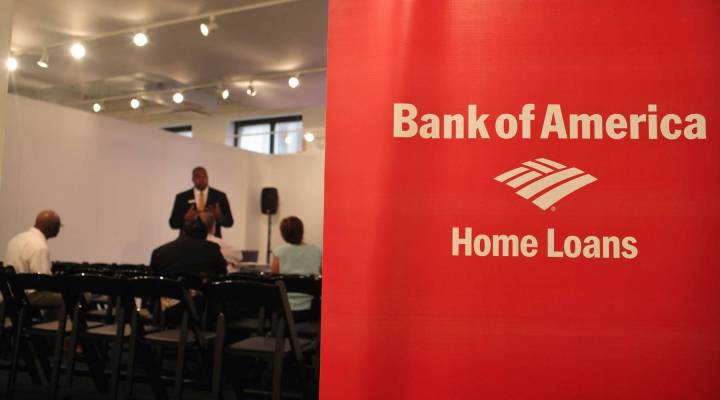
BofA launching program for at-risk homeowners
Share Now on:
BofA launching program for at-risk homeowners

Stacey Vanek Smith: Bank of America is launching a pilot program where homeowners who are at risk of foreclosure would hand over the deed to their house and then rent it back from the bank.
Morris Davis is a real estate professor at the University of Wisconsin. He’s here to talk about this with us. Good morning.
Morris Davis: Good morning.
Smith: So Morris, what is Bank of America offering here?
Davis: My understanding is that they’re offering people that are on the verge of losing their homes to foreclosure the opportunity to rent those homes for a few years.
Smith: So program is still in its pilot phase from what we know — but is this something, in your opinion, that could actually help the housing market situation?
Davis: I don’t see how this could be a very popular program. I don’t understand at this point what incentives homeowners would have to rent their house rather than lose the house to foreclosure. If they rent the house, they’re just paying market rents; but if they are willing to let the house go into foreclosure, they basically don’t have to make any mortgage payments, or taxes, or do any maintenance for up to a year and a half.
Smith: You know, this seems to be a common problem when it comes to the housing market, that there don’t seem to be any large-scale fixes — everything seems to be a little bit piecemeal, including HAMP (Home Affordable Modification Program), and some of the larger federal programs. Why is that?
Davis: Institutions have tried programs that we thought might work — for example, paying people to leave their house early when we understood that the house was going into foreclosure. The whole process doesn’t have to play out over a year and a half if banks are willing to make side payments to homeowners to leave the house early.
But ultimately, most signs in the housing market now are that it’s at least stabilized, or potentially turning around. So we’re all hopeful that in the next year, many of these problems are going to be behind us.
Smith: Morris Davis is the director of the James Graaskamp Center for Real Estate at the University of Wisconsin. Morris, thank you.
Davis: Stacey, thanks very much.
There’s a lot happening in the world. Through it all, Marketplace is here for you.
You rely on Marketplace to break down the world’s events and tell you how it affects you in a fact-based, approachable way. We rely on your financial support to keep making that possible.
Your donation today powers the independent journalism that you rely on. For just $5/month, you can help sustain Marketplace so we can keep reporting on the things that matter to you.


















